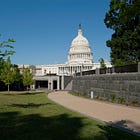Government Scrambles to Address Reports China Has Blocked BHP Iron Ore Shipments
This piece is freely available to read. Become a paid subscriber today and help keep Mencari News financially afloat so that we can continue to pay our writers for their insight and expertise.
Today’s Article is brought to you by Empower your podcasting vision with a suite of creative solutions at your fingertips.
Prime Minister Anthony Albanese expressed concern Tuesday over reports that China has blocked BHP iron ore shipments, saying he wants to see the issue resolved quickly while characterizing the pause as potentially related to contract price negotiations.
Albanese told reporters he was disappointed by the development affecting Australia’s largest commodity export and most valuable trading relationship with China.
“I am concerned about that and what we want to make sure is that markets operate properly and of course we have seen those issues in the past,” Albanese said. “I want to see Australian iron ore be able to be exported into China without hindrance. That is important. It makes a major contribution to China’s economy but also to Australia’s.”
Iron ore represents Australia’s largest and most valuable commodity export, with China serving as the number one buyer. The trade relationship generates billions of dollars annually for the Australian economy and federal budget revenue.
Truth matters. Quality journalism costs.
Your subscription to Mencari directly funds the investigative reporting our democracy needs. For less than a coffee per week, you enable our journalists to uncover stories that powerful interests would rather keep hidden. There is no corporate influence involved. No compromises. Just honest journalism when we need it most.
Not ready to be paid subscribe, but appreciate the newsletter ? Grab us a beer or snag the exclusive ad spot at the top of next week's newsletter.
Treasurer Jim Chalmers said he will arrange a meeting with BHP Chief Executive Mike Henry but stopped short of committing to direct government intervention in what he characterized as primarily a commercial matter.
“I’ll set up a conversation with the CEO of BHP about this. Obviously, I’ve seen those reports. They’re concerning reports,” Chalmers said. “Ultimately, though, they are about the commercial arrangements between two companies. And so, in one respect, a matter for the company to work through, and I’ll have discussions with Mike Henry about that in due course.”
The reports emerged as the government continues efforts to stabilize the trading relationship with China following years of tensions that resulted in tariffs on multiple Australian exports including wine, barley and agricultural products.
Albanese sought to downplay the severity of the situation, suggesting the pause could be temporary and related to routine contract negotiations.
“Well, these measures are always disappointing, but let’s hope certainly that they are very much short term,” Albanese said. “Sometimes when people are negotiating over price, sometimes these things will occur. But I want to see this resolved quickly.”
Defence Minister Richard Marles echoed the prime minister’s concerns during an interview with ABC’s Afternoon Briefing, saying the government is monitoring the situation carefully but wants to allow commercial processes to proceed.
“Obviously, we’re looking at this carefully. We do not want to see any hindering of the trade that is undertaken between our two countries in general terms, but specifically in relation to iron ore,” Marles said.
He said the government understands how the Chinese economy operates and wants commercial negotiations to take their course while making clear Australia opposes hindered trade beneficial to both countries.
“I think this will play out, we’ll obviously monitor that, but fundamentally we do not want to see a hindering to what is a very important engagement in trade for the benefit of both of our countries,” Marles said.
When asked whether the situation creates challenges given China’s lack of distinction between commercial operations and state interests, Marles acknowledged the complexity while emphasizing the government’s familiarity with Chinese economic structures.
“We understand the terms on which the Chinese economy operates and so this is something with which we are familiar and we want to allow commercial processes to play out and to take their course and that’s appropriate,” Marles said. “I think it’s reasonable in that context to say that we obviously want to see trade continue in a way which is not hinted.”
Assistant Defence Minister Peter Khalil reinforced the government’s position that the matter primarily involves commercial negotiations between companies while noting the Treasurer’s engagement with BHP leadership.
“This is a commercial matter and it is a negotiation around contract pricing, a matter between companies. They are undertaking those negotiations right now,” Khalil told ABC during a political panel discussion. “I hope that they resolve it because it’s actually in everyone’s interest that they do.”
Khalil said the government backs Australian businesses in such situations.
“The Treasurer is speaking to the CEO of BHP because the Australian Government is always going to back in Australian businesses when it comes to this,” he said.
Opposition Senator Jane Hume criticized the government’s handling of China relations, pointing to Albanese’s visit to Beijing two months ago where he met with Premier Li and brought executives from major mining companies including BHP, Rio Tinto, Fortescue and Hancock to discuss trade.
“It was only two months ago that we saw the Prime Minister in China specifically talking about iron ore and trade deals with Premier Li. He brought over BHP, Rio Tinto, Fortescue, Hancock, specifically to talk to Chinese steelmakers,” Hume said. “Well, what was all that about it? I mean, if he couldn’t succeed, and only two months later, we’re now finding potentially what is economic coercive behaviour from China.”
She suggested the development indicates the prime minister’s China visit achieved little beyond symbolic gestures.
“I mean, it sounds like a giant fail. If this is the case, well, then all he did was go over and hug a couple of pandas,” Hume said.
Khalil defended the government’s diplomatic efforts, citing success in removing tariffs that cost Australian exporters billions of dollars during the previous government.
“I think it’s really rich for Jane to talk about in the context of negotiations with China, because under her government, billions of dollars were lost because of tariffs that were put on,” Khalil said. “We did the actual adults in the room work of diplomacy to remove those tariffs, whether it was on crayfish or crabs or whether it was on wine or whether it was on any other agricultural product.”
He said the government’s diplomatic work over recent years has delivered significant benefits for Australian exporters who faced challenges under the previous administration.
“The diplomatic work that the Australian government, the Albanese government, has undertaken over the last three or four years has led to big, big benefits for our exporters, which, unfortunately, were under the pump under your government,” Khalil said.
Hume countered by comparing the government’s response to the BHP situation with its approach to other international trade matters.
“You simply cannot purse your lips and clutch your pearls over Trump tariffs on one hand and then shrug your shoulders and say, not our problem, about iron ore on the other, with China,” she said.
The development comes as Australia seeks to maintain stable economic relations with China while managing strategic concerns in the Indo-Pacific region. The iron ore trade represents a critical component of the bilateral economic relationship, with Chinese steel production heavily dependent on Australian resources.
The government’s measured response reflects the delicate balance required in addressing commercial disputes with China without escalating tensions that could affect broader trade relationships or complicate diplomatic efforts in the region.
Shadow Defence Minister Angus Taylor did not provide extensive comment on the BHP situation during his interview focused primarily on defense policy and Middle East peace efforts.
The reports of blocked shipments emerged amid ongoing discussions about Australia’s economic relationship with China and the extent to which the government should intervene in commercial disputes involving major Australian companies and Chinese buyers.
BHP has not issued public statements about the reported pause in shipments or the status of contract negotiations with Chinese customers. The company’s engagement with Chinese steel producers represents a significant portion of its iron ore business and contributes substantially to the company’s revenue.
The situation highlights ongoing challenges in Australia-China commercial relations despite recent government efforts to stabilize the broader bilateral relationship through diplomatic engagement and high-level visits.
Albanese’s August visit to China, which included meetings with Chinese leadership and participation by mining company executives, was viewed at the time as evidence of improving relations following years of tensions that peaked during the COVID-19 pandemic.
The government removed previous restrictions on ministerial contact with Chinese counterparts and worked to address trade barriers affecting Australian exporters across multiple sectors.
Those efforts resulted in the removal of tariffs on Australian wine, barley and other agricultural products that had cost exporters billions of dollars in lost revenue during the period of heightened tensions.
The current situation with BHP iron ore shipments represents a test of whether the stabilization in bilateral relations can withstand commercial disputes or whether such incidents signal potential vulnerabilities in the economic relationship.
Government officials emphasized their preference for allowing commercial processes to proceed while monitoring the situation and maintaining contact with BHP leadership to ensure Australian business interests receive appropriate support.
The resolution of the matter will likely influence perceptions of the stability and reliability of the Australia-China trading relationship and could affect future government approaches to managing commercial disputes involving Chinese buyers and Australian exporters.
Sustaining Mencari Requires Your Support
Independent journalism costs money. Help us continue delivering in-depth investigations and unfiltered commentary on the world's real stories. Your financial contribution enables thorough investigative work and thoughtful analysis, all supported by a dedicated community committed to accuracy and transparency.
Subscribe today to unlock our full archive of investigative reporting and fearless analysis. Subscribing to independent media outlets represents more than just information consumption—it embodies a commitment to factual reporting.
As well as knowing you’re keeping Mencari (Australia) alive, you’ll also get:
Get breaking news AS IT HAPPENS - Gain instant access to our real-time coverage and analysis when major stories break, keeping you ahead of the curve
Unlock our COMPLETE content library - Enjoy unlimited access to every newsletter, podcast episode, and exclusive archive—all seamlessly available in your favorite podcast apps.
Join the conversation that matters - Be part of our vibrant community with full commenting privileges on all content, directly supporting The Evening Post (Australia)
Catch up on some of Mencari’s recent stories:
It only takes a minute to help us investigate fearlessly and expose lies and wrongdoing to hold power accountable. Thanks!










